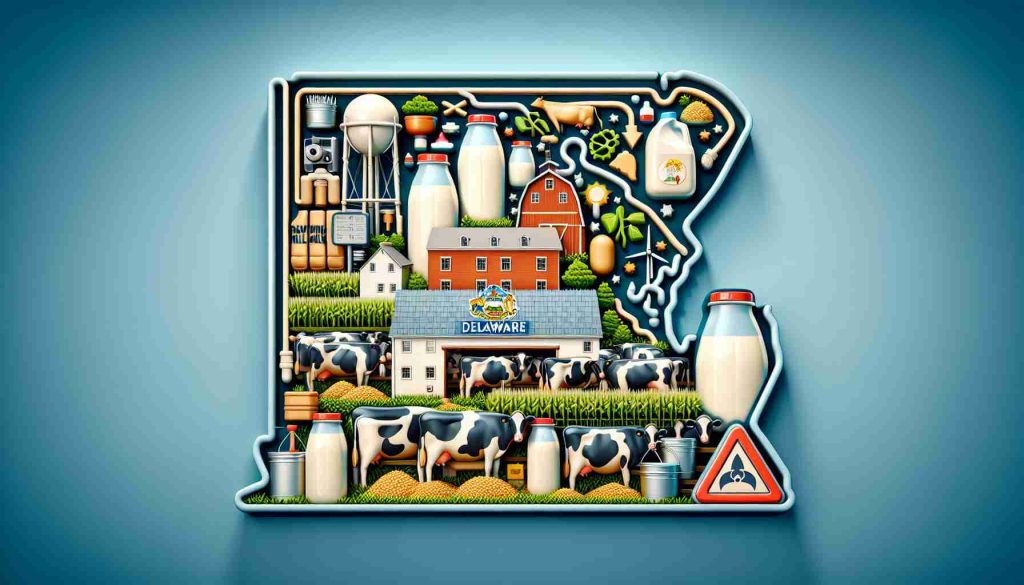Delaware Considers Approving Sale of Raw Milk Despite Health Concerns
3 min read
Delaware lawmakers are deliberating a proposal to legalize the sale of raw cow’s milk, a controversial move that has sparked debates among health experts and dairy enthusiasts alike. Advocates believe that allowing the purchase of raw milk will promote consumer choice and support local farmers, while opponents argue that the risks associated with unpasteurized milk are too great to ignore.
Raw milk, straight from the udder and unprocessed, has garnered a loyal following among some who believe it retains more nutrients and beneficial bacteria than pasteurized alternatives. However, health officials caution that consuming raw milk can pose serious health risks, including exposure to harmful bacteria such as E. coli and salmonella.
While supporters of raw milk point to its potential health benefits and natural state, skeptics emphasize the importance of pasteurization in killing off pathogens that could otherwise lead to foodborne illnesses. If Delaware moves forward with this legislation, it will be crucial for consumers to weigh the perceived benefits of raw milk against the well-documented risks associated with its consumption.
As the debate unfolds, both sides are adamant in their positions, underscoring the complex considerations involved in balancing food choice with public health concerns in the dairy industry.
Delaware Contemplates the Sale of Raw Milk: Exploring Uncharted Territory
Delaware finds itself at a crossroads as lawmakers mull over the decision to legalize the sale of raw cow’s milk in the state, sparking a contentious dialogue among various stakeholders. While the previous article shed light on the differing views surrounding raw milk, there are additional facets to this debate that warrant consideration.
What are the Key Questions Surrounding the Approval of Raw Milk Sales in Delaware?
One critical question that arises in this context is how the implementation of regulations and safety standards will be enforced to minimize health hazards associated with raw milk consumption. Additionally, it is important to examine whether consumer education programs will be put in place to inform buyers about the potential risks and benefits of opting for raw milk over pasteurized options.
Challenges and Controversies on the Road to Legalizing Raw Milk Sales
One of the key challenges in approving the sale of raw milk is the need to strike a delicate balance between supporting local farmers’ livelihoods and ensuring public health safety. Critics of the proposal argue that the risks posed by consuming unpasteurized milk far outweigh any perceived advantages in terms of taste or nutritional value. Therefore, navigating through these conflicting viewpoints presents a significant hurdle in this decision-making process.
The Pros and Cons of Legalizing Raw Milk Sales
Advantages of legalizing the sale of raw milk include fostering consumer choice by offering a wider array of dairy products and potentially boosting the local agricultural economy. Supporters also advocate for the preservation of traditional farming practices and the purported health benefits associated with consuming raw, unprocessed milk.
On the flip side, the disadvantages are stark. Public health experts warn of the serious dangers posed by harmful bacteria present in raw milk, emphasizing the critical role that pasteurization plays in safeguarding against foodborne illnesses. Moreover, the potential for increased incidences of foodborne outbreaks cannot be overlooked if raw milk is allowed for sale in Delaware.
Conclusion
As the deliberations continue, it is evident that approving the sale of raw milk in Delaware is a decision fraught with complexity and implications for both consumers and dairy industry stakeholders. Balancing the scales between promoting local agriculture, upholding food safety standards, and ensuring public health protection is a multifaceted task that necessitates careful consideration from all involved parties.
For further insights on the broader landscape of food safety and regulations, visit FoodSafety.gov.




